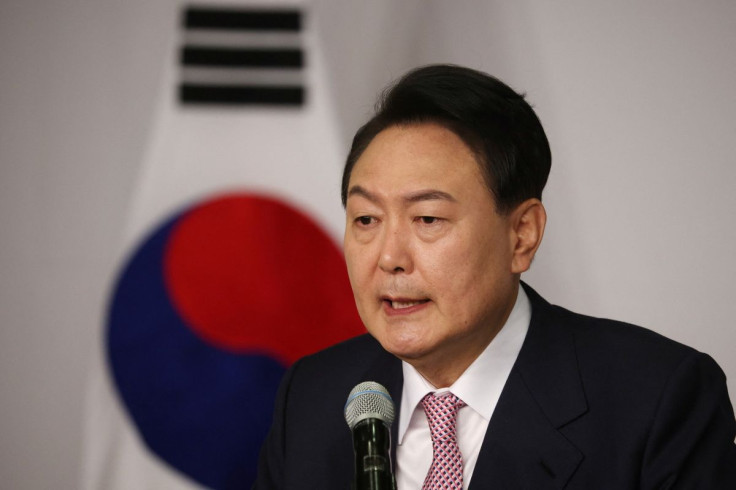South Korea Key For Europe To Manage Fallout From China-U.S. Rivalry, Report Says

Closer ties between the European Union and South Korea under President-elect Yoon Suk-yeol are imperative for managing China's rising power and the increasing rivalry between Beijing and Washington, former ambassadors and officials said.
The crisis in Ukraine and the need to counter "Moscow's direct threat to the rules-based international order" further make EU-South Korea cooperation important, the former officials said in a report to be released on Tuesday by the Brussels School of Governance.
Yoon has said he plans to dispatch a delegation of special envoys to the EU before he takes office on May 10, one of the first such delegations by his transition team.
"Cooperation between Seoul and Brussels can help mitigate the most negative effects of Sino-American competition and ensure that the United States does not turn on its allies but rather cooperates with them," said the report's authors, who include former EU and South Korean envoys.
Yoon has vowed to look beyond North Korea and make South Korea a bigger player on the international scene, including by expanding "the breadth of diplomacy in the EU and throughout Asia."
South Korea-Europe cooperation has traditionally taken a back seat to both sides' alliances with the United States.
But deeper cooperation could help boost their strategic value to Washington and Beijing, said Kim Chang-beom, a former South Korean ambassador to the EU.
"It would give additional manoeuvring rooms for South Korea in its dealings with the policy dilemma arising from the rising competition," he told Reuters.
The two sides should establish bilateral councils and diplomatic hotlines, and cooperate on issues such as North Korea's denuclearisation, the report said.
The two sides should also modernize their free trade agreement, which has been superseded in terms of scope and ambition by the agreements that the EU has signed with direct South Korean competitors like Japan.
South Korea's bid to join the Digital Economy Partnership Agreement (DEPA) and the Comprehensive and Progressive Agreement for Trans-Pacific Partnership (CPTPP) could have a negative effect on trade links between South Korean and European firms if not addressed, the report added.
"I think that the need for cooperation goes beyond specific issues," said Ramon Pacheco Pardo, the Korea Chair at the Brussels School of Governance, noting their shared interests and values, and capabilities.
"But Russia's invasion of Ukraine or China's assertiveness make clear that there are specific reasons why Korea and the EU need to cooperate."
© Copyright Thomson Reuters 2024. All rights reserved.





















